SNP rediscovers its political confidence with wily Budget
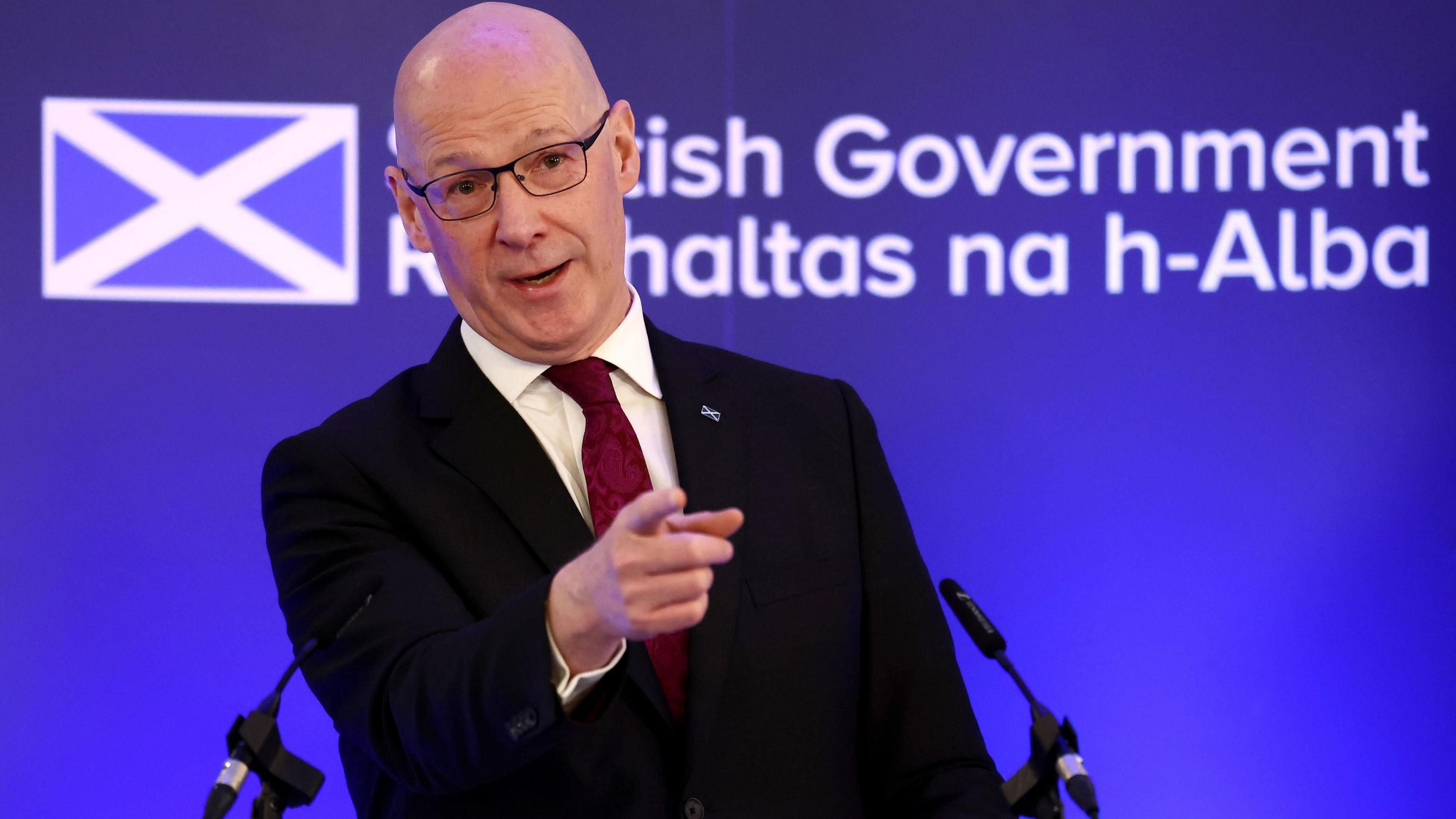
John Swinney's government delivered its draft Budget this week
- Published
The SNP seems to be rediscovering its political confidence after the bleakest period the party's had since winning power at Holyrood.
In the last couple of years its independence strategy has hit a brick wall, the party has tied itself in knots over gender reform, and it has fallen in and out of love with the Scottish Greens.
There have been three first ministers during that period and one of those remains under police investigation as the Branchform inquiry into SNP finances drags on.
The party's worries have not gone away. Far from it.
It still has huge challenges to overcome, not least significant underperformance in key public services like the NHS.
Even its selection process for the Holyrood election could be a source of bitter infighting.
Yet at the end of the week in which First Minister John Swinney's government delivered its draft Scottish Budget, his team seems more optimistic than at any time for at least two years.
Five things we learned from the Scottish Budget
- Published4 December 2024
SNP government vows to scrap two-child benefit cap
- Published4 December 2024
Early Budget analysis suggests several causes for concern
- Published5 December 2024
That may seem odd given the SNP completely lost control of the narrative in Scottish politics and was comprehensively defeated by Labour at the general election in July.
There has been an understandable tendency to write the party off.
For a while it has felt that Labour was on course to defeat the SNP at the next Holyrood election and to regain devolved power after 19 years in opposition.
The most recent opinion polling, external raises questions about that analysis.
Labour's "change" mantra at the general election seemed to tap into a public appetite for exactly that and it remains perfectly possible they could win.
The point is that a change of government at Holyrood is not inevitable. The SNP will put up a fight and it remains a political force to be reckoned with.
The budget setting process is a good demonstration of how wily they can be.
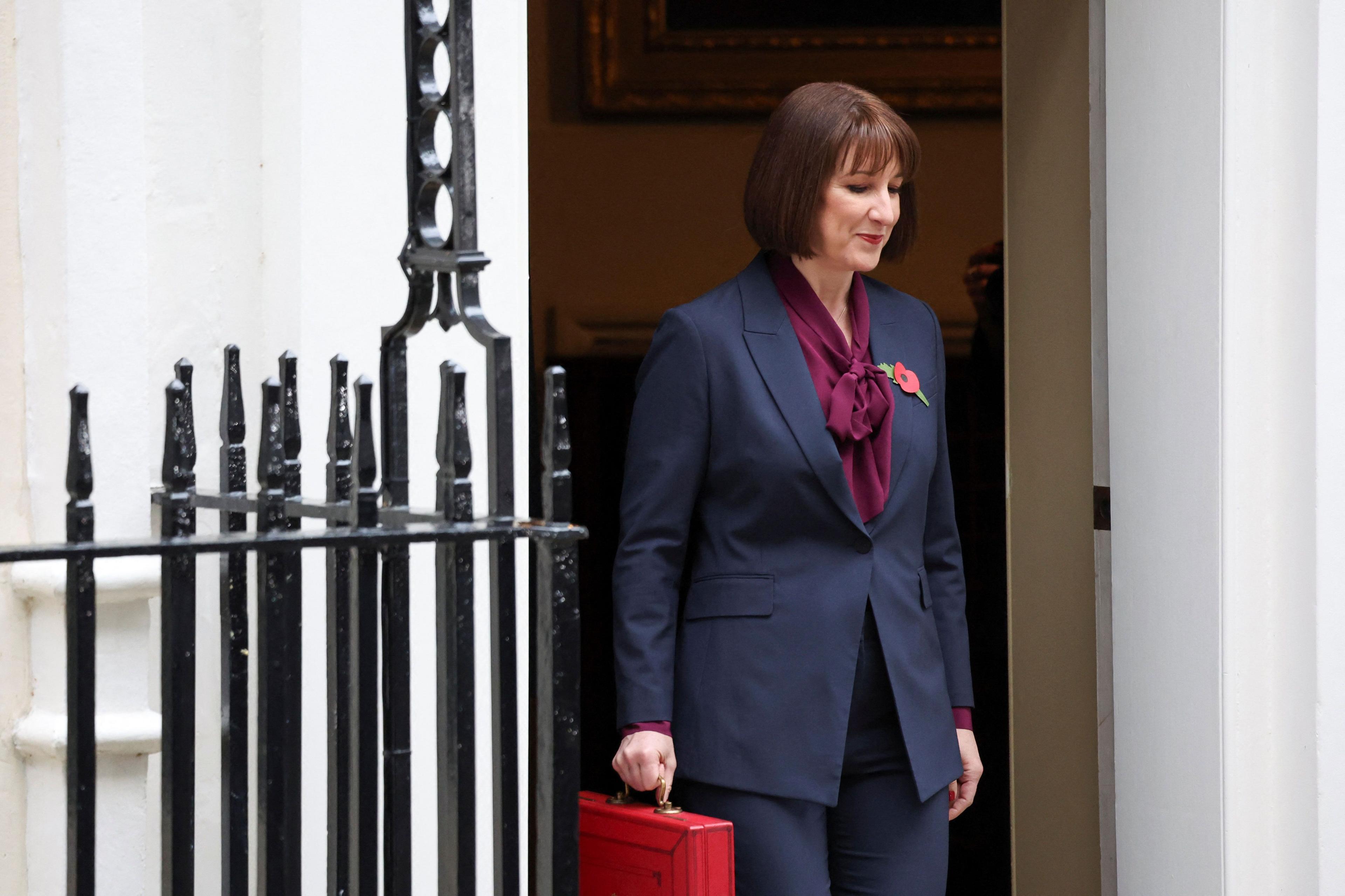
Chancellor Rachel Reeves announced an increase in funding for the Scottish government
At the end of October, the UK Chancellor Rachel Reeves helped put Labour on the front foot in Scotland by announcing a substantial uplift in funding for the SNP government this year and next.
As I said at the time, this opened up political space for Labour to turn the focus on the delivery of better public services in Scotland (under SNP administration since 2007).
With the publication of the draft Scottish Budget this week, the SNP has managed to seize back some of the political initiative.
It has happily banked the £1.5bn extra spending from the UK Treasury this year and the £3.4bn extra next year.
Much of this is gobbled up paying growing NHS, social welfare and public sector wage bills.
However, the SNP has managed to direct some of that cash to policy priorities that pile political pressure on Labour.
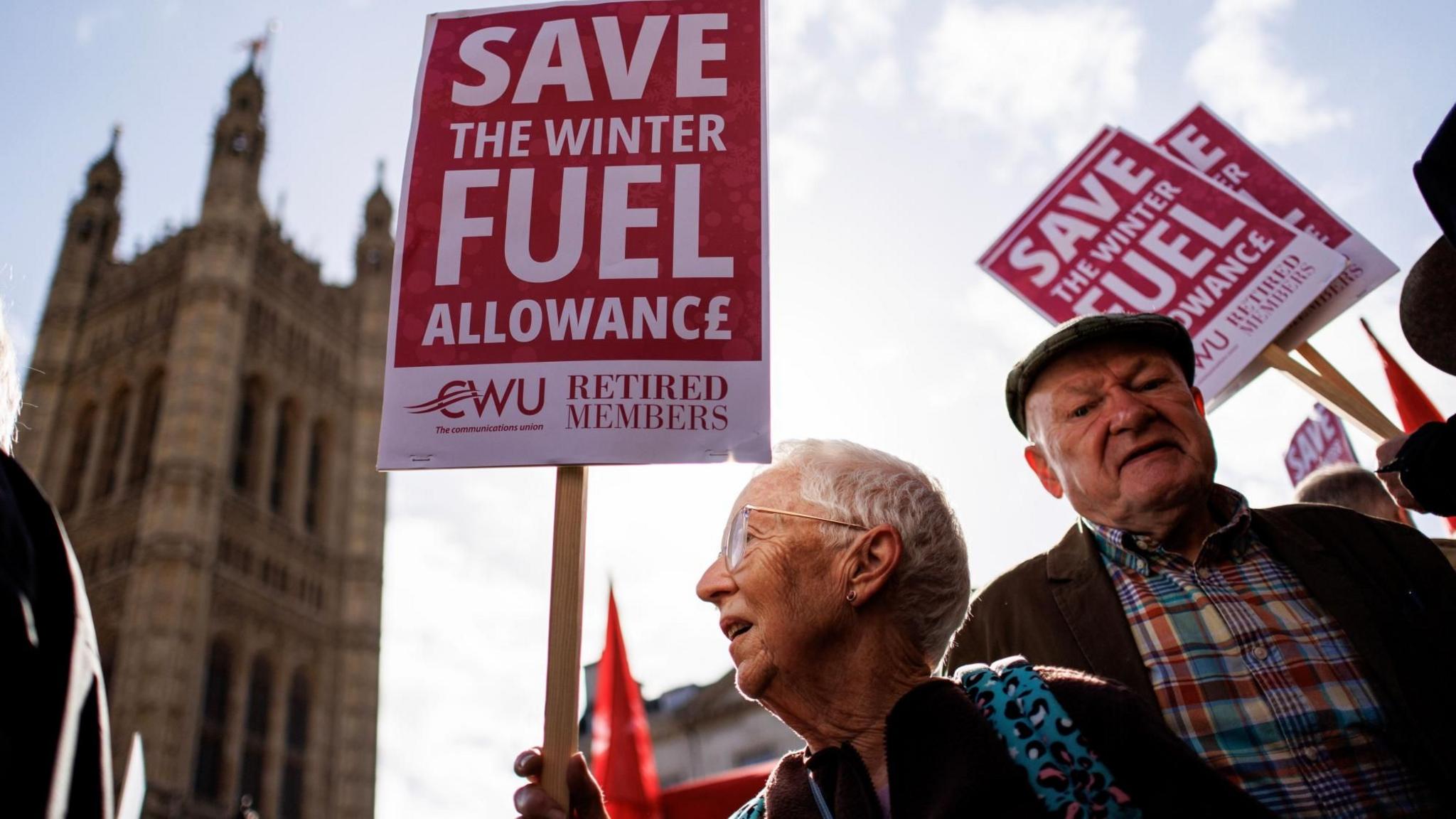
The UK government's cuts to winter fuel payments have proven controversial
The Scottish government has promised to partly reverse cuts to winter fuel payments for older people not in receipt of pension credit.
These cuts were initiated by the UK government and are being matched by the Scottish government this winter before a new payment is brought in next year.
It has also promised to end the two-child cap on access to benefits in Scotland, something that Scottish Labour has previously expressed a desire to achieve.
It is clear this policy was a very late addition to the budget statement. It has not yet been fully costed. The Scottish Fiscal Commission's rough estimate is £150m in the first year and it has described the policy as a "fiscal risk".
Scottish Labour leader Anas Sarwar initially dismissed the SNP's idea as a "policy without a penny" because the first tranche of payments are not in the budget for 2025/26.
SNP ministers are proposing to make the change from spring 2026, just before the Holyrood election.
However, they insist there is £3m in their budget plans to make the necessary preparations.
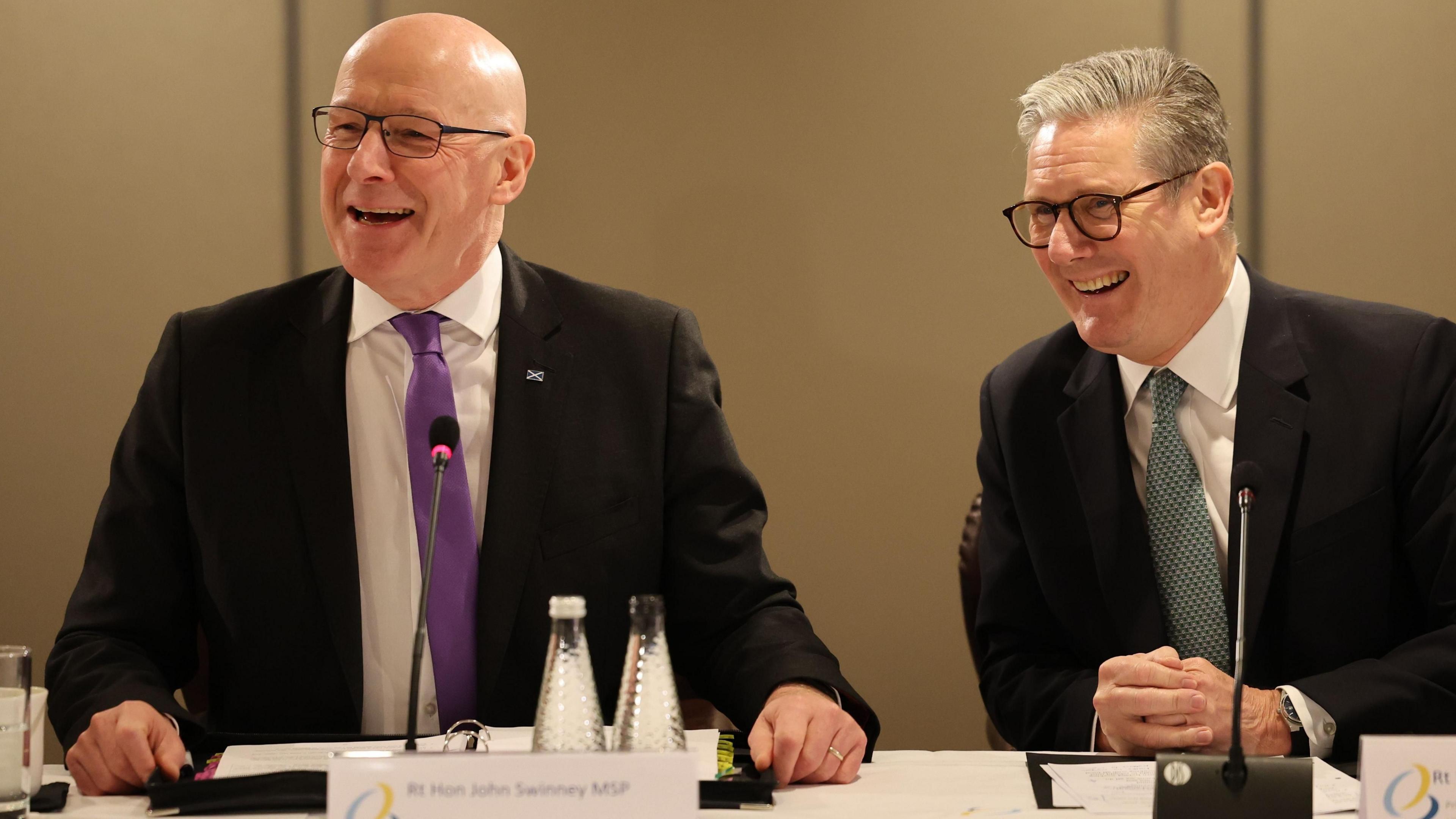
John Swinney and Sir Keir Starmer held talks at the British Irish Council meeting in Edinburgh
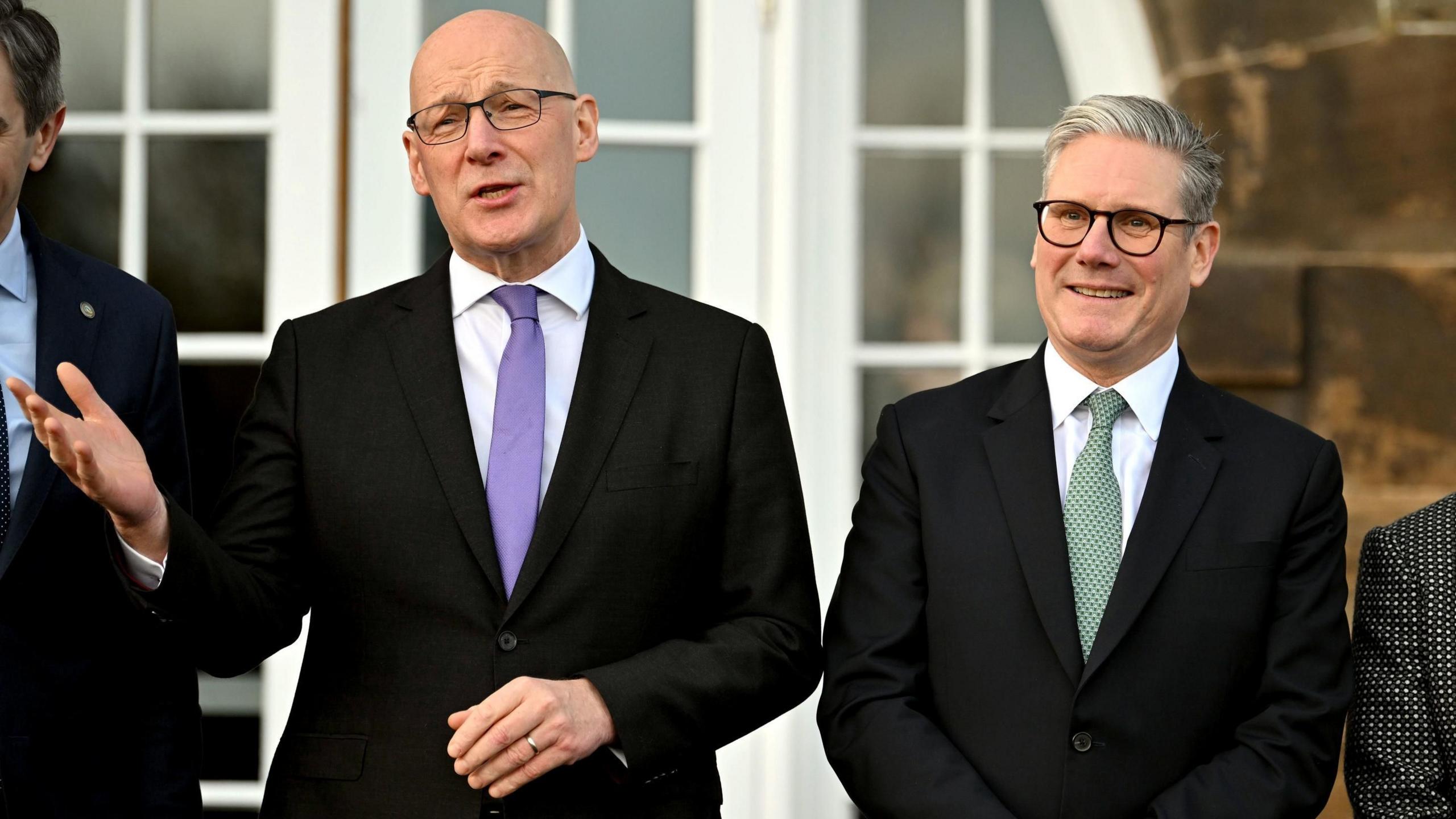
John Swinney and Sir Keir Starmer held talks at the British Irish Council meeting in Edinburgh
They have also formally requested assistance from the UK Department for Work and Pensions (DWP) to access the data required to establish who would be eligible for extra cash.
They may also need the UK government to tweak the law so that anything extra paid out in Scotland is not simply clawed back by another part of the system.
The DWP has said it will "engage constructively with the Scottish government where necessary" - which may or may not be an expression of willingness to assist.
On Thursday, Prime Minister Sir Keir Starmer said ending the two child cap was not a "silver bullet" for tackling child poverty and that the policy could not be afforded across the UK.
On Friday, he held private talks with John Swinney in Edinburgh, after which Mr Swinney said the PM had agreed to work with him on the two-child cap.
Having reset the relationship with the devolved governments since taking power at Westminster, Labour's commitment to partnership politics is now being tested by the SNP.
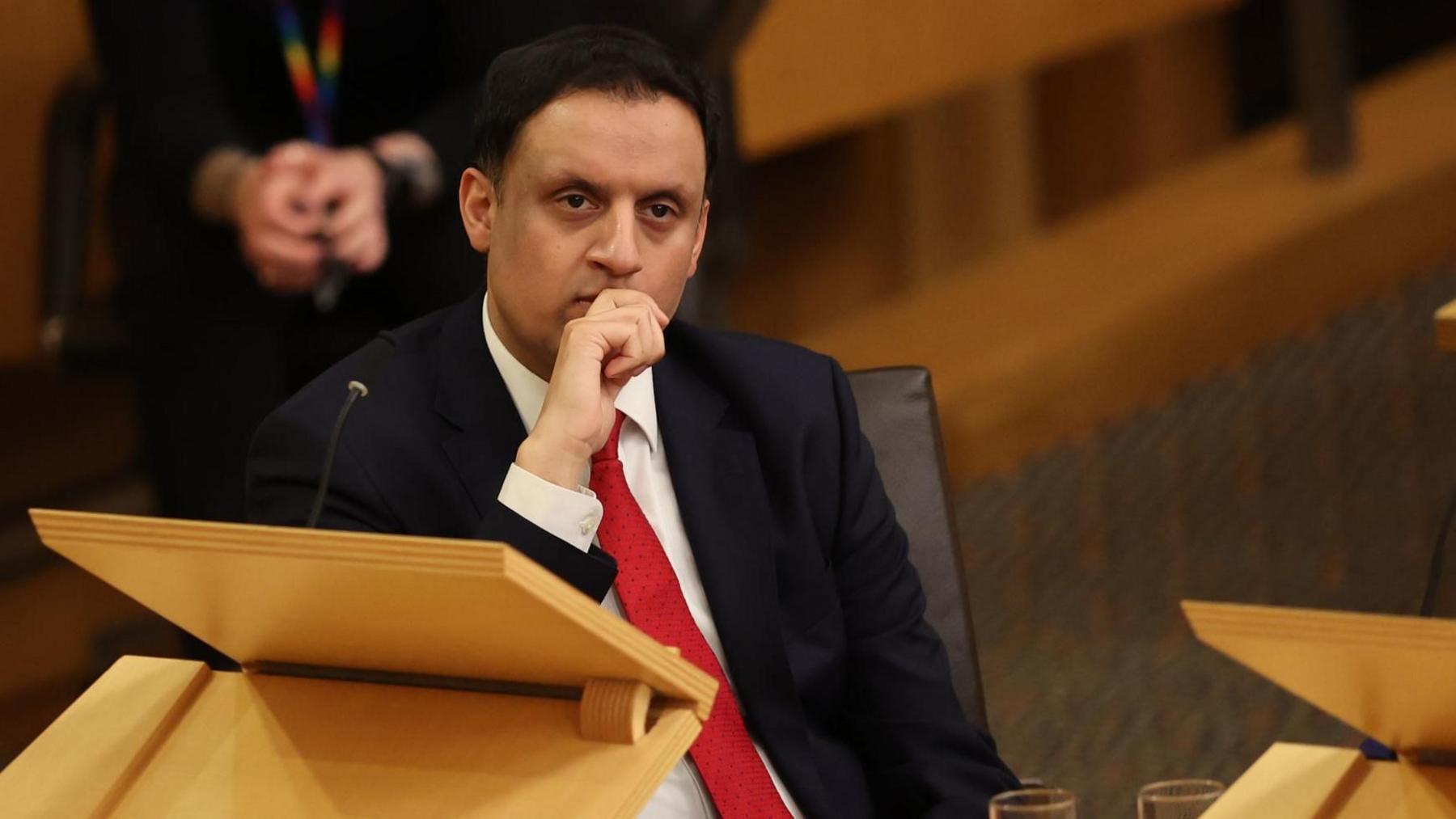
The Budget has left Scottish Labour leader Anas Sarwar facing a dilemma
At Holyrood, Scottish Labour also has a Budget dilemma. It is perfectly entitled to criticise the SNP's approach to taxation and public spending.
The question is: Can Labour afford not to back a Scottish Budget that includes winter fuel cash for pensioners and a pathway to ending the two-child cap?
The SNP is not counting on their votes but if it does not get them, it will never tire of reminding voters of what Labour chose not to support.
In that sense, this is a politically savvy budget from John Swinney's administration.
It also includes policy suggestions from the Greens, the Liberal Democrats and the Alba party, which are more likely allies.
There is no expectation of Conservative support. They are firmly opposed to the SNP's approach to taxation, which requires higher earners to pay more than they would in England to raise extra funds for public spending.
All parties know there needs to be a budget deal before key votes in February.
Otherwise there could be chaos in disbursing public money to pay bills and deliver promised wage increases to public servants.
It's not clear any party would want to risk being held responsible for that - or the possibility of an early Holyrood election.